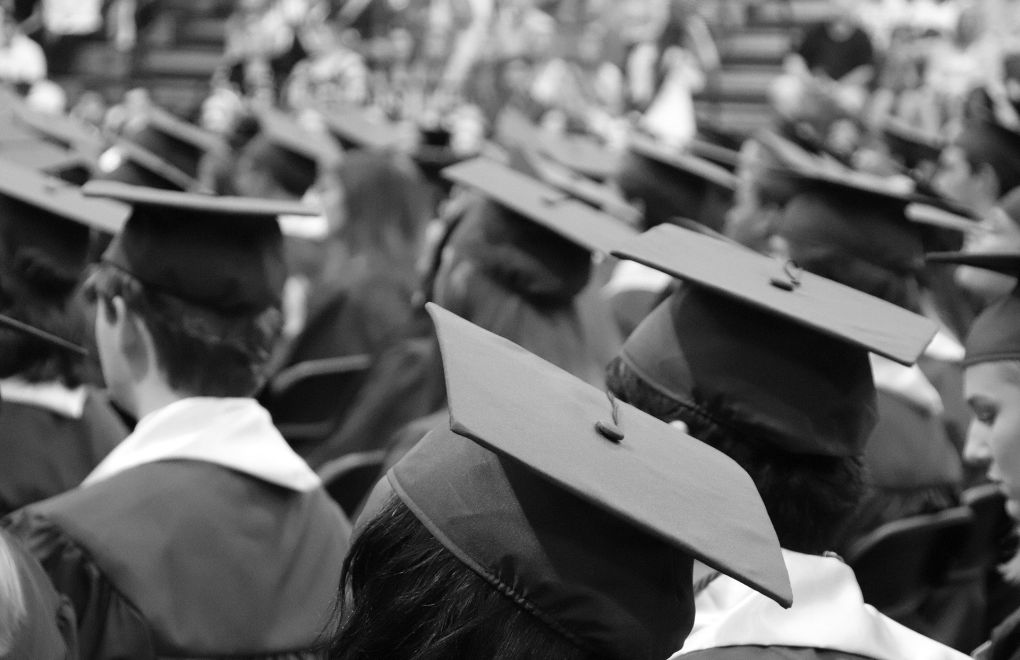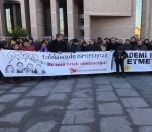Click to read the article in Turkish
Prepared by Demet Sayınta from Human Rights School (İnsan Hakları Okulu), the Academic Freedom Violations in the Post-State of Emergency Period Monitoring Report has been published.
Published as part of a project jointly run by the European Instrument for Democracy and Human Rights (EIDHR) and Capacity Building Association (KAGED), the 81-page report has shown that the climate of pressure and fear which was prevalent during the State of Emergency keeps harming the country's academia and universities:
"One of the most visible consequences of the State of Emergency for violations of academic freedom is that censorship and self-censorship become more widespread. After the State of Emergency, self-censorship has become the 'normal' for most academics.
"In fact, most academics have noted that they cannot differentiate between the State of Emergency and its aftermath, adding that they have forgotten what they expressed and how before the State of Emergency.
"As the academics do not feel free in classes, academic publications, project applications, social media use and even during communication with their colleagues, they turn to self-censorship.
"This climate of pressure has undermined academic cooperation and caused a loss of faith in academic production and academia."
- About the State of Emergency: Following the military coup attempt on July 15, 2016, the State of Emergency was declared on July 20, 2016. It remained in effect until July 18, 2018 as it was extended for three-month periods. During this period, a series of Statutory Decrees were issued within this framework, closing several organizations, including NGOs, and discharging thousands of people from public service, including several academics and teachers.
'There are now less complaints, but...'
Some findings from the report are as follows:
"The criteria of academic promotion and performance pressure, standing in the way of academics' job security as a very serious threat, have turned academic titles into 'positions of wearing out.'
"Academics have to live worried about the possibility that their labor contracts will not be renewed. Their academic production has been allocated to the aim of getting points to be tenured.
"It is detected that the complaints of students have declined in the post-State of Emergency period. A decline has been observed in the complaints on the grounds that classes are now mostly devoted to conveying 'technical information' and there has been a move away from a climate of critical discussion due to the time limitation brought about by the distance learning environment amid the COVID-19 pandemic, together with the additional self-censorship as the classes are recorded.
'Taboos are not discussed in classes'
"Classes do not involve discussions on the taboo issues of Turkey and, thus, the taboo issues of the academia of Turkey, namely the Kurdish Question, the Armenian Issue, minorities and LGBTIQ+s.
"There have emerged taboo areas specific to this period, namely the criticisms about the ruling Justice and Development Party (AKP) and the current problems of Turkey. Academics have indicated that they omit the parts containing AKP criticism from their classes, choose their examples from other countries and focus on technical and theoretical subjects.
'They do not speak to the press'
"The social media use of academics has changed considerably after the State of Emergency. Worried that their social media posts or statements might pose a threat, including a life threat, they have noted that they do not express opinions on social media or speak to the press and they have been using social media only to follow recent developments.
"Mobbing, which is one of the invisible methods of violation in academia, has been still prevalent in the post-State of Emergency period in the form of preventing the peace academics and dissident academics from being tenured or delaying the related processes.
'Those who obey appointed'
"As was the case during the State of Emergency, the aftermath of this period has also seen that the arbitrary and oppressive practices of the administrators equipped with extraordinary authorities have pushed academics considered to be dissidents away from academic and administrative duties. People who will act in accordance with the culture of obedience have been appointed to juries and administrative positions.
"Women academics have stated that they are subjected to normalized violations of rights due to their gender identities. Expected to act in compliance with gender roles, women academics are discriminated against on the basis of their marital status and they are not accepted as colleagues by male academics, especially in the universities in the periphery.
'They have lost their faith in the academia'
"Academics have indicated that they have lost their faith in academia and their voices are now not as loud as before due to the climate of pressure and fear brought about by the State of Emergency.
"For this reason, they have emphasized that they are not hopeful for the future of the university, stating that if there occurs a change, it will be possible only when the general political climate of Turkey changes and a struggle for academic freedom will be meaningful only if it is waged along with a struggle for freedom of expression." (AS/SD)
* Click here to read the full report (in Turkish)













